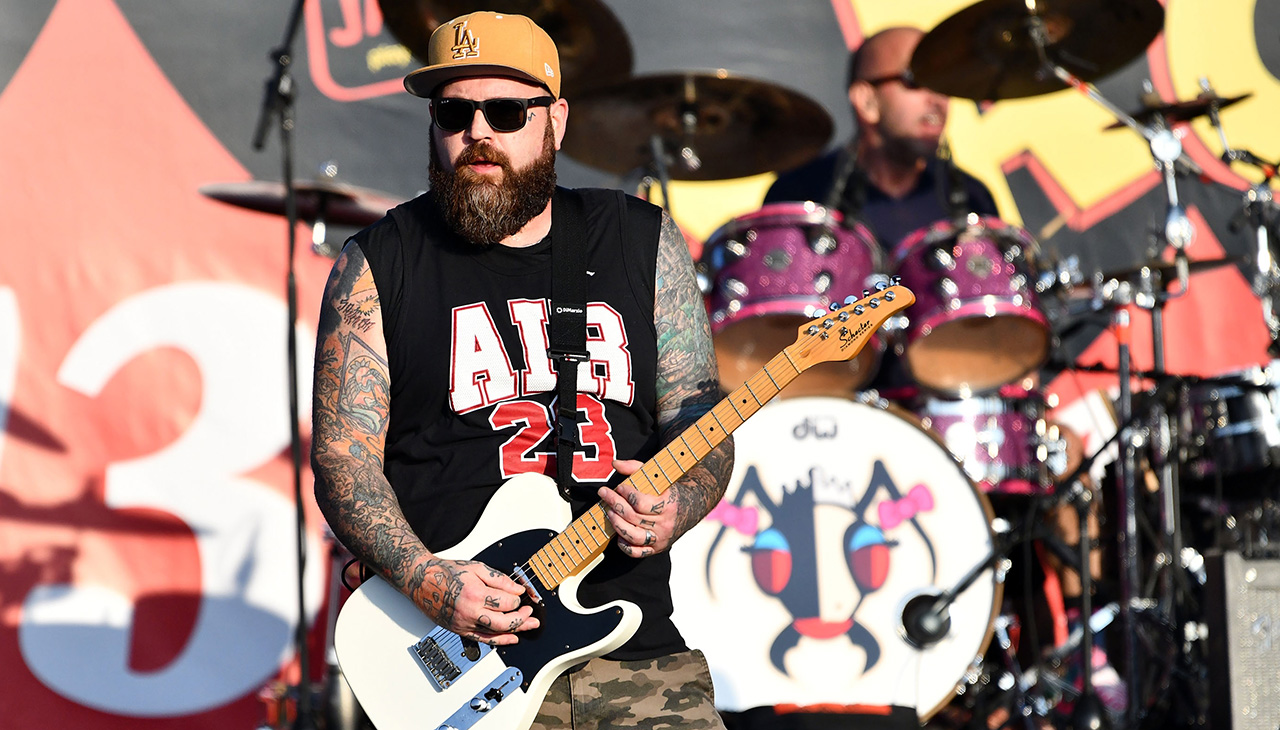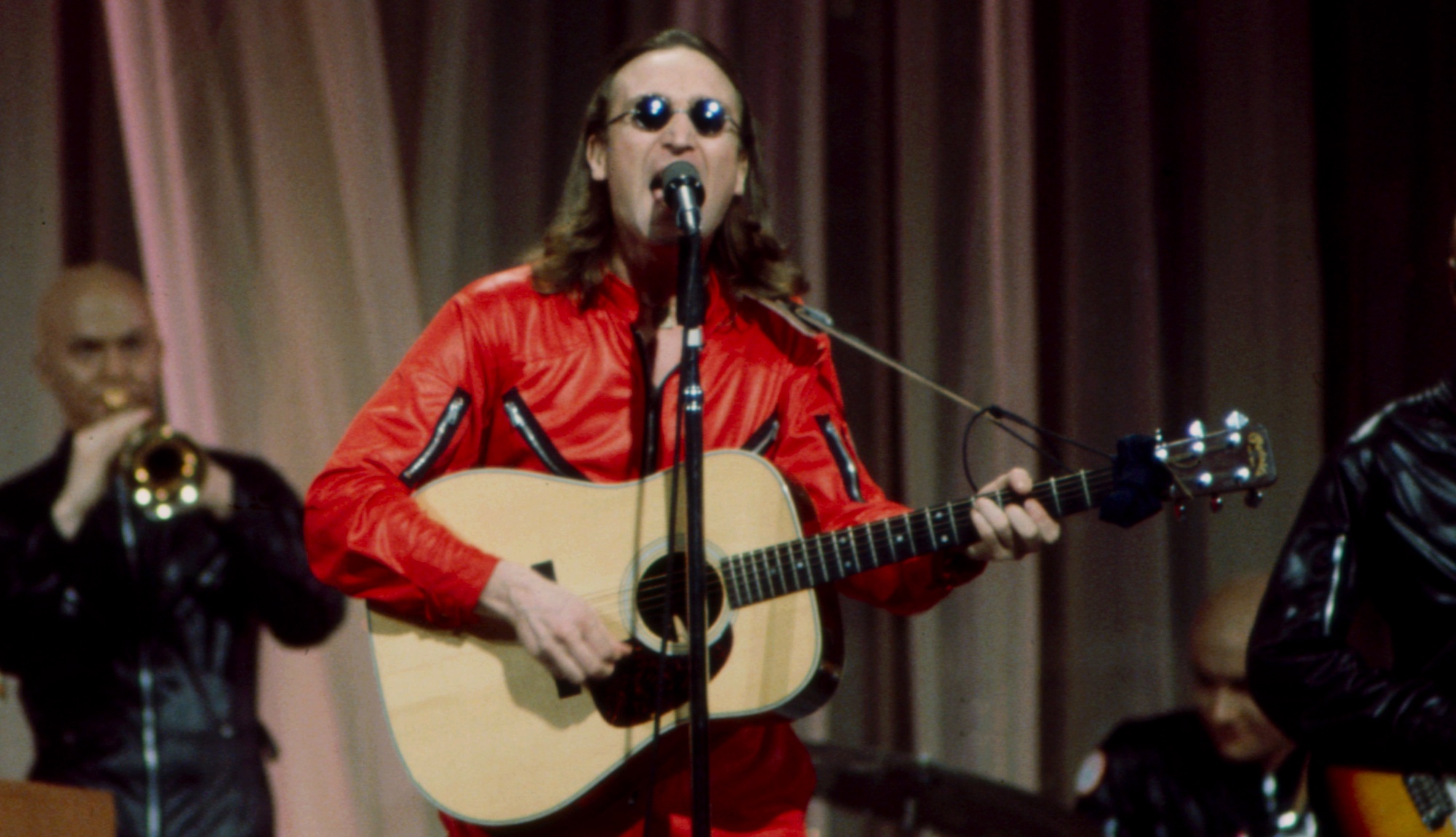“I was trying to be Dave Navarro or Vito Bratta – those moments where you go into the spotlight with wind blowing”: Terry Corso on how he finally fused ’80s shred with nu metal for Alien Ant Farm’s surprising comeback
Writing shreddiest record yet, Mantras, was like a debut album experience for Corso. He reveals why he’s reveling in building his own guitars, loves surprising audiences with Strandbergs, and the guitar lessons he learned from Stone Temple Pilots’ DeLeo brothers

All the latest guitar news, interviews, lessons, reviews, deals and more, direct to your inbox!
You are now subscribed
Your newsletter sign-up was successful
It’s almost a decade since Alien Ant Farm last released a record. That’s allowed for what guitarist Terry Corso calls a “hard reset” before their sixth album, Mantras – which delivers a slew of nu metal swagger, funk and reggae vivacity along with progressive adventurism.
“They say you have your whole life to write your first record, but three months to write your second.” Corso says. “I feel like we got to write a second first record. Whether it was having kids, losing family members, illness or people getting sober, we got extra time to pour ourselves into this album and get back to who we are.”
Among the lessons from a 28-year career, the band were particularly influenced by a schooling at the hands of Stone Temple Pilots’ Dean and Robert DeLeo, who produced 2003’s TruANT.
Coming off the back of ANThology two years earlier – a record that included smash hits Movies and Smooth Criminal – the band had a long list of producers eager to work with them.
“Believe it or not, Jerry Harrison [Kenny Wayne Shepherd, Crash Test Dummies, No Doubt] wanted to produce the record, which was mind-blowing,” Corso recalls. “We had Mexican food with him at [vocalist] Dryden Mitchell’s house. It was surreal.
“But the Stone Temple Pilot guys were trying to get into producing, and we thought that was an incredible opportunity. We were already so influenced by them. If you listen to S.S. Recognize [from 1999’s Greatest Hits and re-recorded for 2003’s TruANT], we totally ripped that off from Army Ants. We’ve always felt spiritually connected to that band. It seemed like the right thing to do.”
He continues: “I learnt a lot about how to craft beautiful tones. They’re all about vintage gear and their collections are vast. I played on all their stuff on TruANT – it was great to learn about the quality of those amps and how they translate onto recordings.
All the latest guitar news, interviews, lessons, reviews, deals and more, direct to your inbox!
“I learned so much, man. They put me through the meat grinder. I’ve got a huge cabinet of cool chords because of them – and they showed me how 50 percent of my tone is in my right hand. So it was my mission to bust out every trick I learnt from them on Mantras.”
The album’s highlight may not be what you expect, though, as Corso honors ‘80s shred with a whammy-abusing solo in So Cold. He stumbled across a “spectacular” second hand Schecter PT-7 Wes Haunch signature seven-string, complete with a Floyd Rose, so he had to “go all out” with the whammy.
“It’s my shreddiest solo,” he explains. “I was just trying to be Dave Navarro on Three Days, or Vito Bratta. Butt rock was the epitome of the ‘80s – those moments where you go into the spotlight with wind blowing. That music is in my blood, so I had to go in that direction.”
While it was tracked with the PT-7, Corso uses his seven-string Strandberg Boden live. “What I like about the Strandberg is that the trem has a little rollerball that the strings float over,” he says.
I’m always trying to one-up myself every night. It renews my astonishment at so many of my influences
“Floyd Roses can be fussy, but the Strandberg hardly ever needs tuning. You should see people's faces when I pull it out! It’s incredible; they’re astonished. I like to throw curveballs – I’m at the stage where I want to have as much fun playing guitar, so I want to play every guitar.”
He does admit, however, to being “really nervy about playing it live.” He explains: “Everyone's looking at you; it’s a world away from being sat in my home studio recording it. When I nail it, it’s the first thing I think about after the set.
A post shared by Terry M. Corso (@terrymcorso)
A photo posted by on
“I’m always trying to one-up myself every night. It renews my astonishment at so many of my influences; Steve Vai never gets nervous about his long legato runs. But it’s fun to have nerves – it makes me feel alive!”
Another concept the DeLeo brothers instilled in them was that small amps are not something to be snuffed at. Even if they’re basically toys. “They taught us the power of combos and low-wattage breakup,” Corso recalls.
“We have an old Fender Princeton that works really well. Sometimes we’ll split ‘em and stack the tone, but we also used a half-stack Marshall micro amp. We put a Royer R-121 microphone in front of it – and it fucking rips!
“We also used a Smokey amp, which is a cigarette packet with a quarter inch speaker in it. You get this thin kind of buzzy, rattling, blown-out tone. If you pair it with a Marshall head there’s something about the brittleness of it that just fills in the cracks. It’s rad.”
Corso’s favored Les Paul Custom was used for much of Mantras’ rhythm tracks, with a bright orange Strandberg Boden representing his first foray into extended range guitars. But one new addition was used more than most.
“I scored a really cool Danelectro double neck-that’s a guitar on the bottom and a baritone on the top, which is quite rare. I used the baritone for reinforcements all over the record.
My guitars look kinda mysterious… I see people in the front row at shows, like, ‘What the hell is that?!’
“On Glasses there’s this very bluesy part and I was trying to use the baritone in a fashion that Glen Campbell would use one. I really fell in love with his stuff growing up; my grandmother was playing him constantly at her house.”
Some of the other guitars that made their way into his collection were sourced much closer to home. “I've been getting into building my own guitars and I’ve been having a blast,” he reports. “I’ll get necks from Warmoth and source pre-relic bodies from independent companies.
“There’s nothing better than going online and trying to find all these different parts. It’s like a scavenger hunt. I’m over 50 now, so I need these things to keep my hands from being idle!
“I've got two guitars out on the road with me now, which means they have to perform,” he continues. “For my Tele I’ve put Seymour Duncan Quarter Pounds in there – they’re really hot single coils.
“And I’ve just built a relic’ed Jazzcaster. It has a reverse Tele headstock and a roasted maple Tele neck with a Seymour Duncan Distortion. I also put a Floyd Rose and a kill switch on it. It’s just one volume knob and go. Man, it’s a screamer! I love it so much.”
He’s avoided putting his name on their headstocks because “they look kinda mysterious blank,” he says. “I see people in the front row at shows, like, ‘What the hell kinda guitar is that?!’”
While Corso confirms he’s “an amp guy in the studio,” he’s running a Kemper live. He’s profiled his grandma-bought Marshall, which has since been hot-rodded by a “crazy genius.” He enthuses: “I’ve never heard an amp sound like that head does. I’m still looking for those good old tones like AC30s and DC30s, but just using them in a new way.”
With the Kemper doing the heavy lifting, Corso’s pedalboard is what he calls “the a-la-carte zone stuff that I can just add whimsically.” That includes an MXR Carbon Copy delay (“I can’t live without it”), a DigiTech Drop (“you should hear Smooth Criminal with the lower octave – it’s pretty gnarly!”) and mini versions of MXR’s Phase 95 and the Cry Baby wah.
Corso maintains he’s “totally cool” with Alien Ant Farm being placed beneath the nu metal umbrella – but in truth, Mantras sets about redefining the band as much more. It’s a wild ride of a record that, for fans and sceptics alike, will challenge people’s perceptions of the band.
- Mantras is out now via Megaforce.
A freelance writer with a penchant for music that gets weird, Phil is a regular contributor to Prog, Guitar World, and Total Guitar magazines and is especially keen on shining a light on unknown artists. Outside of the journalism realm, you can find him writing angular riffs in progressive metal band, Prognosis, in which he slings an 8-string Strandberg Boden Original, churning that low string through a variety of tunings. He's also a published author and is currently penning his debut novel which chucks fantasy, mythology and humanity into a great big melting pot.




